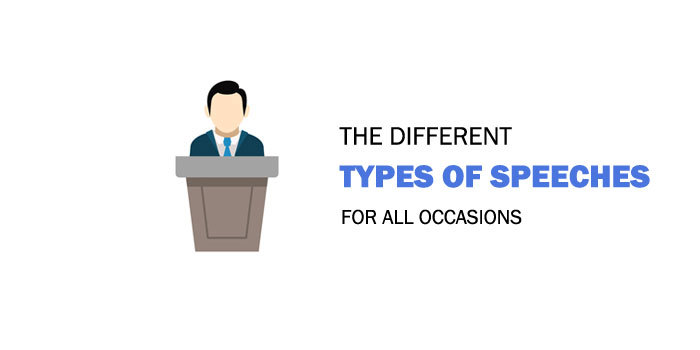14 Types of Speeches for All Occasions that You Should Master
Any person can give a speech, which means it’s not hard, right? Technically, it isn’t hard, but, to give a good speech, you need to not only have a general understanding of your audience and your environment but also master the skill of speech-giving to ensure that your speech is effective in relaying your message.
To do this, you will need to learn more about the different types of speeches that exist and in what context each is used. This will help you choose the right speech type that works for you as well as the one that fits the message that you want to put across to your audience.
Pro-Tip: Keep in mind that each speech type has a different purpose.
14 Types of Speeches You Should Master
1. Entertaining speech
Entertaining speeches are among the most common types of speeches. Their objective is to entertain or amuse people.
As compared to more traditional speeches, entertaining speeches are shorter and less formal, in addition to including funny stories, humor or interesting illustrations. These types of speeches are usually used to convey emotions and are common at weddings and birthday parties. An example of such include stand-up comedy.
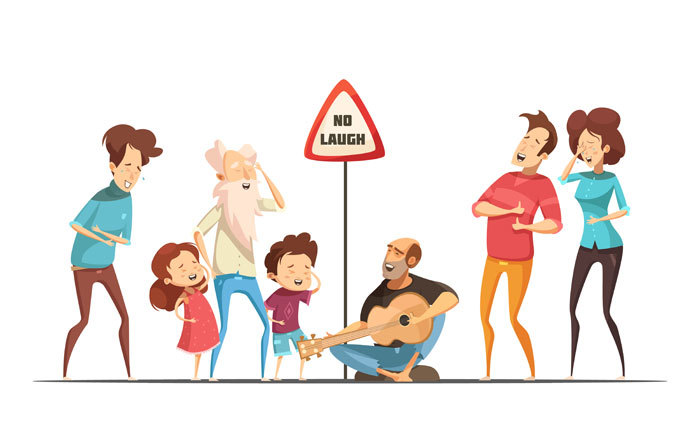
From the above, one may think it’s simple to crack a few jokes and entertain people but unless you were born with a funny bone, you may need to brush up on some stories and killer jokes (the funny ones).
2. Special occasion speeches
These types of speeches do not have a format set in stone and neither do they fall into any particular speech category. Instead, they aim to fit the context of the environment, which helps you to not only gain your audience’s attention but also communicate the message you want to convey effectively.
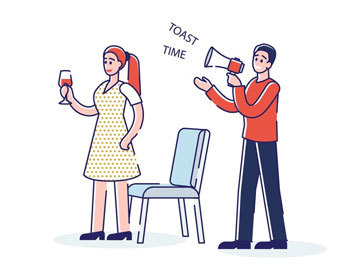
Just like entertaining speeches, special occasion speeches do not use any data or statistics and are usually short. This does not mean they are boring though, so you should aim to make your special occasion speech as direct and interesting as you possibly can.
Special occasion speeches can fit any special occasion; be it a birthday party, award show or wedding, hence the name. You may notice that they bear some similarities to entertaining speeches, as their objective is to convey emotions as well, instead of persuading you or teaching you something.
Special occasion speeches may include tributary, ceremonial and introductory speeches. If you have any significant event that you’d like to mark, then this type of speech should be your go to.
A good example of this type of speech would include a speech you can give as a best man. This would help you express how much the groom means to you.
3. Persuasive speech
These types of speeches are given with the sole purpose of convincing the persons listening that your opinion on a certain topic is right.
To successfully convince your audience that you know what you’re talking about, you can use facts and concrete evidence to support your argument. This is what persuades your audience to embrace your opinion while also making your presentation more believable and sensible.

You can also use these types of speeches to help convey your message by making use of emotional triggers. Depending on the context of your presentation, appealing to your audience’s emotions may bring about better results.
A good example of a persuasive speech would be the closing argument that a lawyer gives to the jury in court. The main purpose of a closing argument is to convince the jury to support one’s client and vote in the lawyer’s favor. The closing argument, just like the persuasive speech, highlights any important facts of the case and may appeal to the jury’s emotions, in a bid to help them understand the lawyer’s opinion on the case and their client.
4. Demonstrative speech
Well, this one is pretty easy to explain. From its name, we learn that this type of speech is given when a speaker wants to give a demonstration on how to do a particular thing or educate their audience on how something works. This type of speech is effective in teaching your audience how to do something in the most effective way.
If you plan on giving a demonstration in your presentation, the use of physical demonstrations or visual aids can help your message be better understood by your audience.

These types of speeches are easily confused with informative speeches, so take note of their differences. While informative speeches are more theoretical in their delivery and offer no demonstrations, demonstrative speeches, in being true to their name, teach an audience how to do something in a more practical way, i.e. by giving demonstrations.
It should be noted that a demonstrative speech will only be demonstrative if it includes visual aids. Asking yourself questions like, “what is...?”, “why?” or “how?” may help you get started on your demonstrative speech.
A good example of this would be a Chemistry teacher demonstrating how to mix certain chemicals in the lab.
5. Forensic speech
The American Forensic Association defines a forensic speech as the practice and study of debating and public speaking. The association believes that this type of speech is practiced by many college and high school students.
Before giving this type of speech, students are expected to not only research and learn more about a certain topic but also practice a speech on the said topic before teaching it to an audience. Organizations and institutions of learning like universities will then hold tournaments that allow these students to present their speeches.

This type of speech bears many similarities to the competitions that were held in public forums in Ancient Greece.
6. Oratorical speech
Oratorical speeches are usually delivered by an orator. The objective of this type of speech can be to either give comfort, mourn a loss, address any important issue and how it can be dealt with or celebrate a particular event.
These speeches can also be used to express one’s opinion to the audience without necessarily having to persuade them to embrace their point of view.

Oratorical speeches can either be formal and long in nature, in situations like inaugurations, graduations and funerals, or informal and short in situations like when giving a toast during a retirement day.
A good example of an oratorical speech would be inauguration speeches, e.g. President Joe Biden’s inauguration speech.
7. Explanatory speech
These types of speeches are used to describe a particular thing or situation. These speeches give a break down on how to do something while providing the audience with an elaborate step-by-step process.
These speeches may be confused with demonstrative speeches as they have some similarities but are not, as they do not include visual aids.
A fitting example of an explanatory speech would be a lifestyle and beauty talk show host explaining how to properly cleanse one’s face by giving a step by step process of a proper skin care routine.
8. Informative speech
If you want to teach your audience something about a particular topic or educate them on new information, then informative speeches are the right fit for you. The objective of informative speeches is to break down any complicated theories into easy to understand words that can be communicated accurately and effectively.
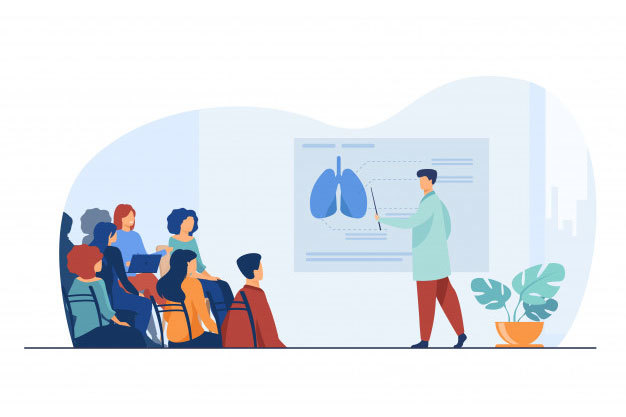
These types of speeches can be used when teaching economic or social topics. They differ from persuasive speeches as they depend on statistics, educative studies and information as well as facts instead of relating to an audience’s emotions. These statistics and facts help support any claims that you make during your presentation.
A fitting example of an informative speech would be a museum guide giving an informative speech to a group of individuals in the museum, educating them on various artifacts using historical information.
9. Motivational speech
Are you planning to encourage your audience, give them confidence to better themselves or inspire them? Then you need a good motivational speech.
The objective of these speeches is to improve an audience’s self-esteem and lift their spirits. They can also be used to help motivate an audience or an individual to achieve a certain goal.
These types of speeches are, in a way, persuasive but instead of persuading an audience with logic, you as the speaker, stirs their emotions.
The best example of a motivational speech that moves people would be Martin Luther King Jr.’s “I Have A Dream” speech.
10. Pitch Speech
Ever heard a character in a movie say that they were pitching a new idea to the board? Well this is what they mean. Pitching speeches are used to acquire approval or support for a solution, product or idea.
Salespeople are pretty good at these types of presentations (newsflash, it’s their job!) given that they pitch a product to a consumer and try to sell it to you by informing you, the consumer, about the product’s best qualities and how the product would benefit you.
Take for instance, a salesman trying to sell you a cleaning robot. They’d explain how it would ease your household chores, you wouldn’t have to dust, or vacuum or do your laundry, as it would do it all for you!
11. Debate speech
Debate speeches are speech types that follow a particular set of rules and are in some ways similar to persuasive speeches. The two should not be confused though, as the main objective of debate speeches is to defend your stance on a particular issue.
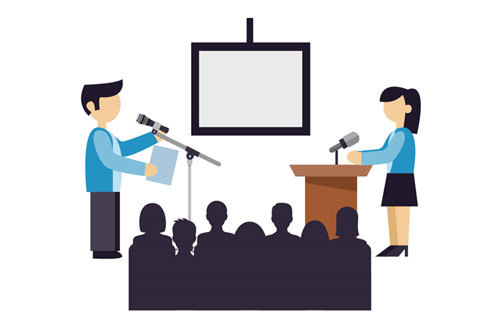
During a debate, each side is given an equal amount of time to defend their view or opinion. These speeches are improvised as you cannot predict all the arguments other debaters may throw at you (unless you can read minds of course). Debate speeches help you develop your public speaking and critical thinking skills while also improving your research and leadership skills.
These types of speeches are common in mock trials, parliamentary sessions and public forums.
12. Eulogy Speeches
Eulogy speeches, or funeral speeches as they are commonly known, are given to remember, honor or praise a deceased individual in front of an audience at a funeral service. The eulogy can be given by a relation of the deceased or by a minister chosen by the family.
The speaker may write down a heartfelt speech that not only honors the individual but also praises them for their achievements.
One of the most difficult experiences an individual can go through is losing a loved one. If you do find yourself in this situation, finding the right words may be challenging. You are therefore encouraged to speak from the heart.
13. Impromptu Speech
These types of speeches are delivered without any preparation or rehearsal. Impromptu speeches occur when one is called on to speak at an event or any other situation.
This may be stressful and intimidating for individuals who like planning things (like myself). However, once you get over the initial public speaking jitters and brush up on any concepts that are relevant, you’ll be good to go.
14. Farewell Speech
Farewell speeches, as the name implies, are used to say goodbye to people. These speeches have a unique tone to them, as they are encouraging as well as sad. They often trigger emotions both in the speaker and in the audience.
A good example of this would be bidding farewell to your colleagues and friends before you retire after working at company X for 21 years.
Conclusion: On the Different Types of Speeches
From the above, we can see that to give a speech, one needs to not only understand the different types of speeches that exist but also master their purposes and the different settings that they can be used in.
To determine the type of speech to give depending on the occasion, you should consider the message you would like to put across and how you would like to deliver it. After this, you can then think about the effect you would like your speech to have or its desired outcome. This could be, for example, teaching your audience how to use an air dryer or introducing a guest you would like the audience to remember.
Properly understanding the types of speeches mentioned above and possessing the ability to speak effortlessly in public will allow you to grow as a public speaker, which will in turn, make you better at relating with different audiences.
